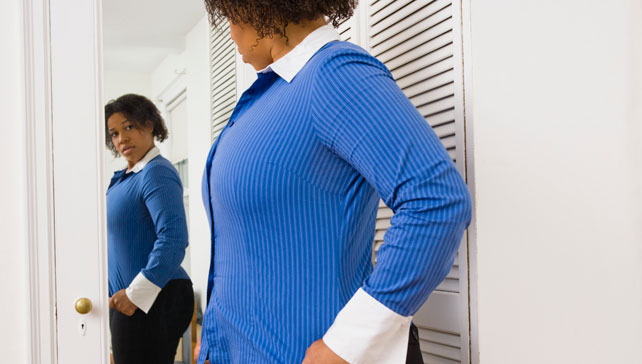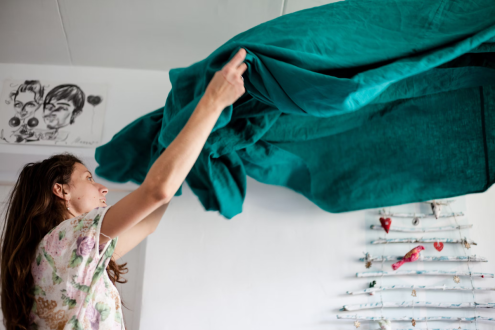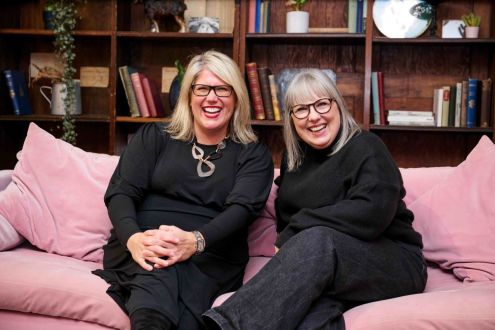Reconcile yourself with your body
Living in peace with our bodies is something we all dream of, yet do very little about. Time to accept reality, says Flavia Accorsi

Most of us experience our body in moments of grace, followed by long periods of dissatisfaction and rejection. Whether we see it as a masterpiece or a prison, an accessory or an object of worship, our body’s status tends to veer between extremes. How can we establish a peaceful relationship with a companion who is both our friend and our opponent?
‘Nature teaches me by the sensations of pain, hunger, thirst, etc, that I am not merely lodged in my body as a pilot in a ship, but that I am so closely united to it that I seem to compose with it one whole,’ wrote the seventeenth-century French philosopher Déscartes in his Meditations On First Philosophy.
We are our bodies as much as we have bodies. Our bodies are wholly ourselves, and at the same time they are objects we can observe, evaluate and upon which we can have an effect.
The status of our bodies is constantly changing. The body is easily forgotten as long as it allows us to get on with our life without a hitch, but it becomes a major cause for concern as soon as its vital functions are impaired. It can be our accomplice in pleasure, or an enemy when its appearance starts to jar with the image we would like to portray.
This relationship is all the more complicated now that we no longer have to resign ourselves to the bodies we’ve been given. Cosmetic surgery and dieting allow us to alter our physical appearance, and therapy can target the causes of our unhappiness. These tools are within many people’s reach.
However, the downside is that these options, which are meant to liberate us, can sow the seeds of guilt. Because they give us the sense that, ‘I can change it if I want to’, they reinforce the general belief that how we look is who we are – demanding or lax, dynamic or lazy. Our body is our calling card, a report revealing good or bad behaviour. For the sociologist and anthropologist David Le Breton, ‘The body is no longer the essential incarnation of one’s self but a personal construct, an object we can manipulate any number of times according to the individual’s desires. These desires are shaped by a culture that advocates liberation while imposing its own rigorous standards. If there is such a thing as a liberated body, it is young, attractive and physically perfect.’
Hence our growing dissatisfaction, contempt and self-disgust, which create a widening gulf between what we are and what we would like to be. Reconciling ourselves with our bodies means both indulging them – by accepting the body as it is – and making demands.
Perhaps it’s time to change what we don’t like. The argument about inner beauty has its limitations. We know how painful those disdainful looks can be and we know the damage we inflict on ourselves with relentless self-criticism. If we’re going to go out confidently into the world we need to draw reassurance from ourselves and our reflection.
But placing too much emphasis on transforming our physical appearance will only lead to an unhappy relationship with ourselves. For the Indian Buddhist spiritual leader Swami Prajnanpad, wisdom means ‘a joyful acceptance of reality’. He said: ‘You are what you are. Accept this with your whole self, not just in your heads.’
This does not mean he advocates fatalistic resignation, rather that we should accept our imperfections and our individuality. Accepting our body is to recognise our family heritage. Reconciling ourselves with our body reaffirms our individuality while helping us rediscover that we belong.








